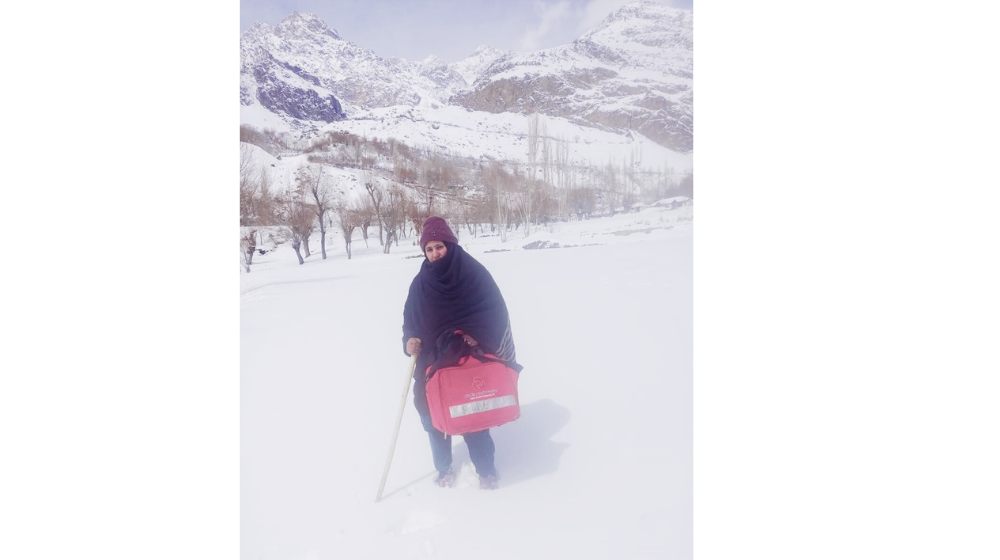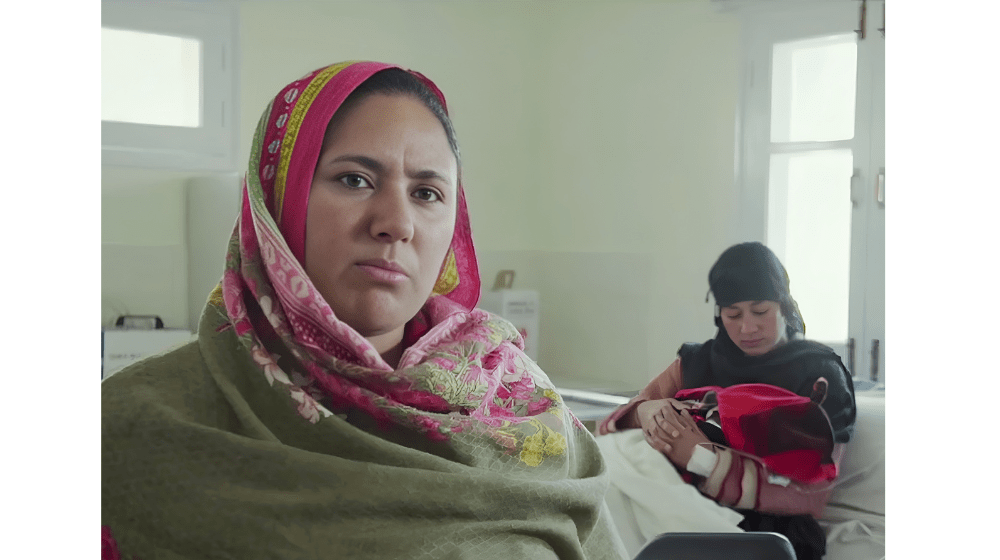Midwives play a crucial role as frontline healthcare providers in the current climate crisis due to their accessibility, adaptability, resilience, and community-focused approach.
In the harsh winters, snow storms that last days and make the countryside an inhospitable but breath taking vista are part of the hurdles faced by the midwives who serve their community. When there is a knock on your door post-midnight in the dead of winter, it means things are amiss. It was one o’clock in the night when Nafas Bibi, Lady Health Visitor, woke up to a knock at the door of her residence at the Aga Khan Basic Health Center (BHC) in Shuist, at a remote part of Upper Chitral, Khyber Pakhtunkhwa which is at an altitude close to 10,000 feet above sea level. She answered the door to find distressed relatives of a woman in prolonged labor.
The agile Midwives measure accessibility through grit and distance in time rather relying on predetermined pathways.
As a LHV and midwife, she was no stranger to answering such calls, being trained in basic emergency obstetric and newborn care. Time was of the essence – Nafas Bibi picked up an emergency delivery kit and supplies. It was with -20 Celsius outside, and the roads were covered in snow varying from three to six feet from the incessant snowfall of the last two days.
While her destination of that night, is at the boundary of Broghel valley. In normal weather this 10km distance would be covered within a couple of hours. In winters, however, the area remains cut off, roads disappearing under many feet of snow. Locals limit mobility, the possibility of landslides and sleet-filled dirt roads posing many risks.

Nafas sets off on the car with the relatives of the pregnant mother. Halfway to the village, the car got stuck. Determined to save the mother, Nafas Bibi set out on foot, leaving the vehicle behind. Braving the bitter cold and walking through sleet and snow for five grueling hours, she managed to reach the woman’s home at six O clock in the morning. While the baby had been delivered safely, Nafas found that the new-mother was bleeding. She maintained and IV line and treated Iqra as recommended in the guidelines. Nafas also found out that the placenta was deeply adhered within the uterus so she suspected a placenta accrete, a high-risk complication.
In this dire situation, Nafas Bibi informed the family that Iqra needs to be taken to the regional hub facility with gynecologist and comprehensive emergency obstetric newborn care services. As the road was blocked, the family and relatives took a stretcher, and carried Iqra on it on their shoulders for around four hours till they reached the car. Nafas walked with the group, retracing her steps of the previous night. After almost 24 hours of travel and toil, Nafas, the dedicated midwife managed to ensure her charges reached the doctor and safety at the Aga Khan Medical Center at Booni.

The gynecologist examined Iqra and confirmed the complications. Iqra’s life was saved after a surgical procedure. The mother and her newborn were discharged after four days. The story not only is a testament to the commitment of the midwives but also the importance of their skill and ability to identify high-risk cases which saves many lives like Iqra’s.
UNFPA and its partner Aga Khan Health Services, under the Sihatmand Khandaan Project (SMK), funded by the Government of Canada, has conducted trainings of Community Midwives (CMWs) in the norther region of Pakistan. Nafs Bibi was among those who were trained.


